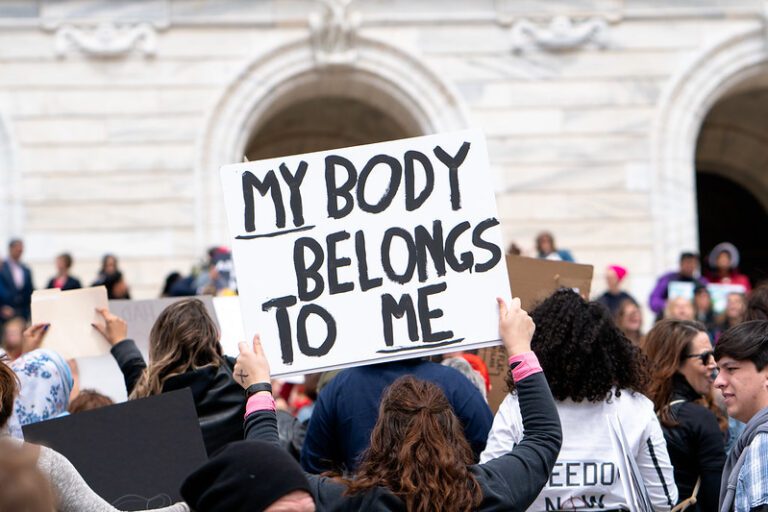
Last weekend, like many weekends before, we traveled from our respective states to Kansas to provide abortion care. A typical weekend is very busy and we stay late to ensure everyone is seen and treated with respect, compassion and evidence-based care.
This weekend was different. In the midst of a pandemic, several anti-abortion governors and attorneys general have chosen to use executive orders to limit abortion to draconian levels in the name of ending so-called “elective” procedures and maintaining personal protective equipment (PPE).
This is in contrast to recommendations of the American College of Obstetricians and Gynecologists and six other national medical organizations, who state unequivocally that access to abortion is necessary, timely and necessary especially during this pandemic.
State restrictions are nothing more than thinly veiled political maneuvers at the expense of thousands of women, their partners and families. For Trust Women Wichita, Kansasstate orders mean it's the closest clinic to get abortion care for people in Oklahoma and Texas, which meant this weekend at Trust Women was decidedly unlike any other.
Most of the patients we cared for sought abortion care for at least two to three weeks, with multiple clinic appointments canceled due to restrictions. Several of these patients could have had a medical abortion, but because of the delays, they were no longer eligible.
One patient had appointments at three clinics before coming to us, but all were canceled due to state government restrictions on abortion care during the coronavirus. Every time she went to a clinic, her appointment was canceled – and as her gestational age increased, the possible places she could go to receive care dwindled.
Many drove nine to eleven hours from Texas, or a little less from Oklahoma.
An immigrant family was trying to get health insurance, but because all immigration processes had stopped, they chose to terminate their pregnancy.
A patient tried to get a contraceptive implant but was unable to because all of her local providers were not seeing patients at this time. She discovered she was pregnant and drove the seven hours to seek abortion care.
A woman had a contraceptive implant, but after it expired, she could not find a gynecologist's office to replace it because they had canceled all elective outpatient appointments.
Another had a scheduled sterilization procedure, which was deemed “unnecessary” and canceled. She tried to make an appointment to resume contraception, but that too was unavailable due to closed clinics during the pandemic.
Several women have survived sexual assault. Many took planes to seek abortion care. Most of the women we've seen recently have lost their jobs, been laid off, or are working so few hours that they can't make ends meet. Everyone was terrified of how the coronavirus pandemic would play out and what it would mean for them.

What we're most worried about—what keeps us up at night—are those still in Texas, Oklahoma and beyond who can't afford a plane or a long car ride and so will get pregnant because the their need for substantial abortion care will remain unmet.
Everyone is scared right now and everyone is anxious. As a nation and a planet, we are facing an invisible enemy and our lives are being turned upside down by it. Using a pandemic to limit and stigmatize abortion is counterproductive, dangerous, and predatory to those who need health care.
Health care providers are the experts in deciding what is and is not essential health care. We are bound by our ethical and moral oaths to serve our communities — that doesn't stop during the pandemic.
Abortion is not optional. Abortion is timely and cannot be delayed.
Every person who makes the decision to have an abortion faces adversity—cost, travel, child care, insurance coverage, stigma, protesters, and the list goes on. But those barriers have become walls in recent weeks.
On our last day, we finished just in time to head to the airport. As we left, we received quiet waves from the clinic staff who were already busy constantly answering the phones with people seeking reproductive health care from all over the country.
The fight for access to reproductive health will continue—despite political leadership ignoring the recommendations of doctors and collective medical organizations that abortion care is essential medicine, abortion is timely and should not be delayed or canceled, especially not due to the response to the COVID-19 pandemic.
We can confirm that there is a profound negative impact on a person's life, health, family and well-being if they do not have access to abortion care. Doctors of all specialties are working tirelessly both to treat patients affected by this virus and to act as a whole to work for the best interest of our community and public health.
As we saw in Kansas, abortion care will continue to be sought despite restrictions. We demand that state leadership put aside their political agendas, listen to our stories, focus on the recommendations of medical and public health experts, and reverse decisions that make access to basic health care impossible.
The coronavirus pandemic and the response by federal, state and local authorities is moving quickly. This time, Lady. focuses on aspects of the crisis – especially as it affects women and their families – that are often not reported by the mainstream media. If you found this article helpful, consider supporting our independent reporting and truthfulness for just $5 a month.

